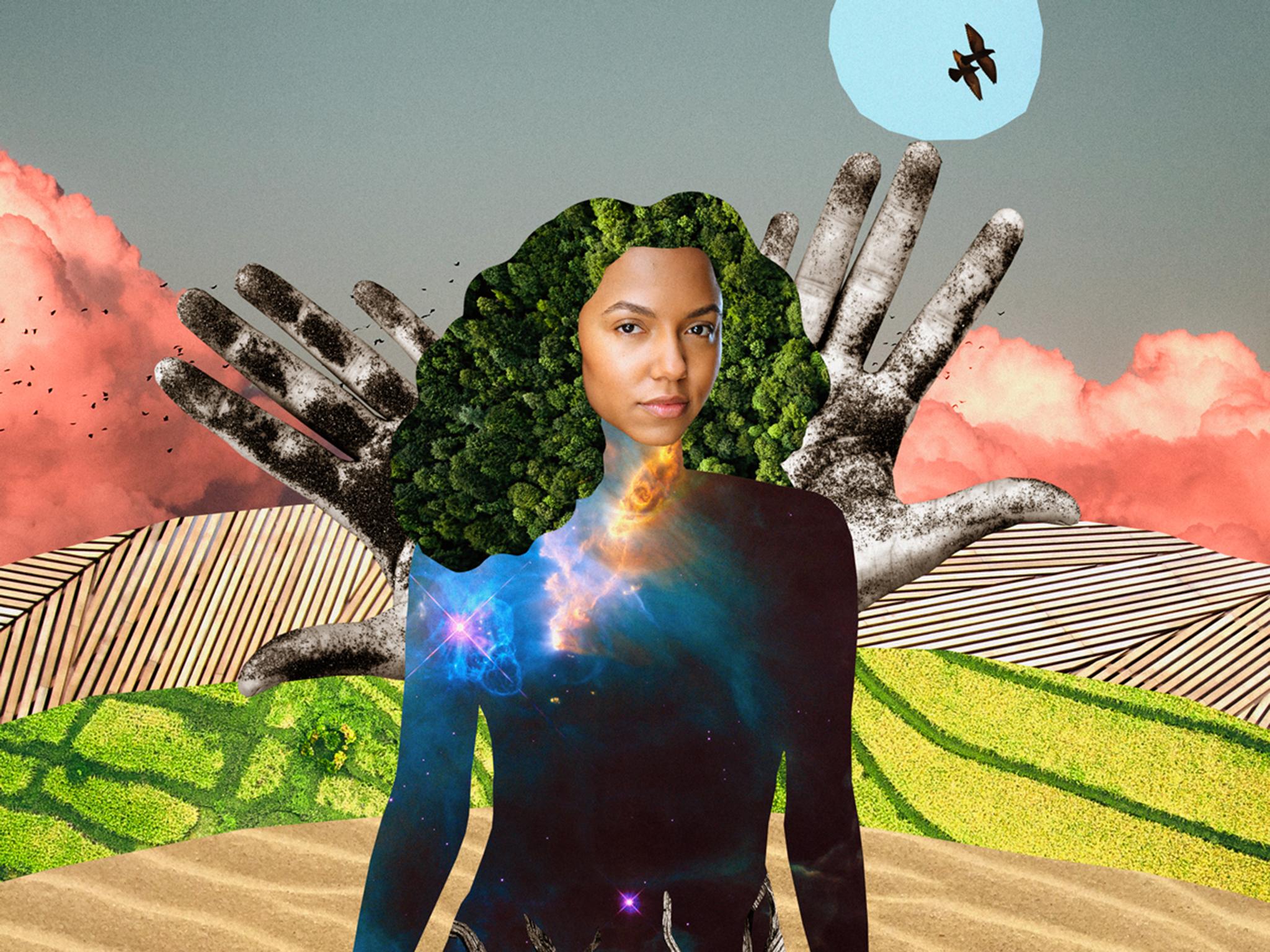‘Climate change stories don’t have to be scary’: The arts festival that hopes to cure your eco-anxiety
CHANGE Festival founder Becky Burchell speaks to Zlata Rodionova about the crucial role artists and creative industries have to play in changing the narrative


With devastating hurricanes, a fast-melting Arctic and months of climate protests on the streets, you’d be forgiven for feeling a little anxious lately. In the words of climate change activist Greta Thunberg, “our house is on fire”.
This has led to the phenomenon “eco-anxiety”, described by Psychology Today as “a fairly recent psychological disorder afflicting an increasing number of individuals who worry about the environmental crisis”.
But, according to Becky Burchell, the founder of new arts festival CHANGE, which launches on Friday in England, the conversations around climate change need to move on from scare stories to positive tales of hope and inspiration.
Not only does she believe that artists have a crucial role to play in changing that conversation, she thinks it is their responsibility to do so.
“We are looking at the transport or the food industry and asking them to change, but we, as artists, also need to think about the stories we are telling and how we can transition the narrative,” Burchell tells The Independent.
“The majority of the work available now is quite dystopian or negative in its outlook. It’s time for us to change that, we must feel energised and hopeful enough to act – something which the creative industries have the capacity to nurture and spread throughout their audiences. CHANGE is my own contribution.”
Taking place at Warwick Arts Centre, the festival aims to help audiences feel more inspired and less helpless about the future – using performance and stories to banish eco-anxiety.
Burchell, who has been part of the creative teams at the Roundhouse venue and Glastonbury Festival before becoming the arts programmer for Bestival and its family-friendly sister Camp Bestival, first got the idea for CHANGE when she gave birth to her daughter in 2015.
“I spent the first few months reading Naomi Klein’s book This Changes Everything: Capitalism vs the Climate because I was worried about what the future might hold for my newborn daughter. It really hit home and I knew I couldn’t go back to my old job.
“As a festival curator, it made sense to use my skills to create events that speak to these specific issues. When I started doing my research, I realised that many good things were already being done around the world – some brilliant innovation, some amazing creativity, but these stories are not being told. As a result, many people are feeling quite hopeless about the future. I felt like my role would be to curate these stories and bring them forward.”
At the time, climate change was not at the forefront of the news agenda and it took her three years to get the project off the ground with the Arts Council turning down her requests for funding twice, before eventually supporting the project.
“There does tend to be trends within the arts and the output of the festival was difficult to quantify. The Joseph Rowntree Foundation turned me down because I couldn’t physically prove that it would create change.

“Today there’s a growing recognition that we need to be very innovative about how we are having these conversations about the future. We know that we can’t just keep trying the same thing over and over again because time is so precious,” Burchell says.
The festival has been developed with guidance from environmentalists, including Sir Jonathon Porritt, the author of The World We Made. The book has now been turned into a play directed by Sophie Austin and produced by Burchell. It will premiere at CHANGE on Friday before touring around the UK in 2019-20.
The action of the play is set in 2050 and looks back over 75 years to ask: “What will it take for us to save ourselves?” It shows a glimpse of how our lives could be in the future if we pull together and change our bad habits now.
“A lot of what we showcase in the festival is that everyone has a role to play and that doesn’t necessarily have to be some kind dictatorship where we are all told what we can and can’t do.
“It’s all about thinking about how to use our own personal skills, interests, passions and sort of finding our role in the story that is unfolding today,” Burchell says.
Other performances include a special comedy evening called What Will We Tell Our Grandkids? described as a hilarious exploration of the conversations we will be having with future generations in years to come.
Speakers from the West Midlands and beyond will also explore “Imagine Eating Better”, “Imagine Living Better”, “Imagine Dressing Better”, “Imagine Better Nature” and “Imagine Feeling Better” in a new series of talks created to enlighten and propose solutions.
CHANGE has the capacity to welcome some 3,000 people over the weekend – although Burchell says she would be happy to get half that number considering it’s the festival’s first year.

If successful, she is planning to bring it back in 2021 and hopes it will inspire more artists to create differently and incorporate sustainability into their work.
In addition to her work on the festival, Burchell is also trying to change the narrative at home, when talking to her children.
“I’ve started talking about the planet as ‘Mother Earth’ – a living thing rather than an inanimate object. I can explain that she is feeling poorly in some places and that we can help her feel better. It’s a narrative they can easily understand as children and something they will grow up with rather than having to relearn it as adults.”
Arguably, her tactics are quite different from those of the Extinction Rebellion movement, which launched a campaign of civil disobedience by demanding a zero-carbon economy by 2025 and have been using a heightened language of emergency since the start of the movement.
But Burchell disagrees: “The problem is that only their most controversial actions are making headlines.
“When you listen more closely to what they are doing, they do have this amazing vision of the future – but they are still at the early stage when it’s all about telling the truth. I feel like we need lots of different tactics at the moment to make people aware of the challenges we face ahead and theirs is part of that.
“At this moment in time, we should all be thinking about what we want to say and what our role can be in this big conversation.”
Join our commenting forum
Join thought-provoking conversations, follow other Independent readers and see their replies
Comments
Bookmark popover
Removed from bookmarks